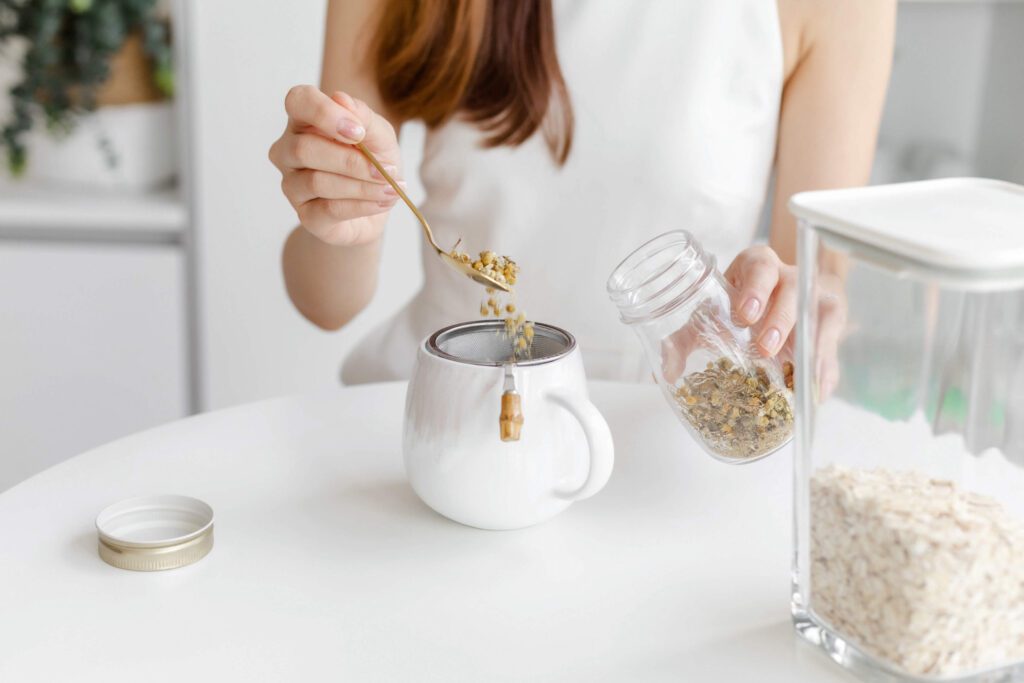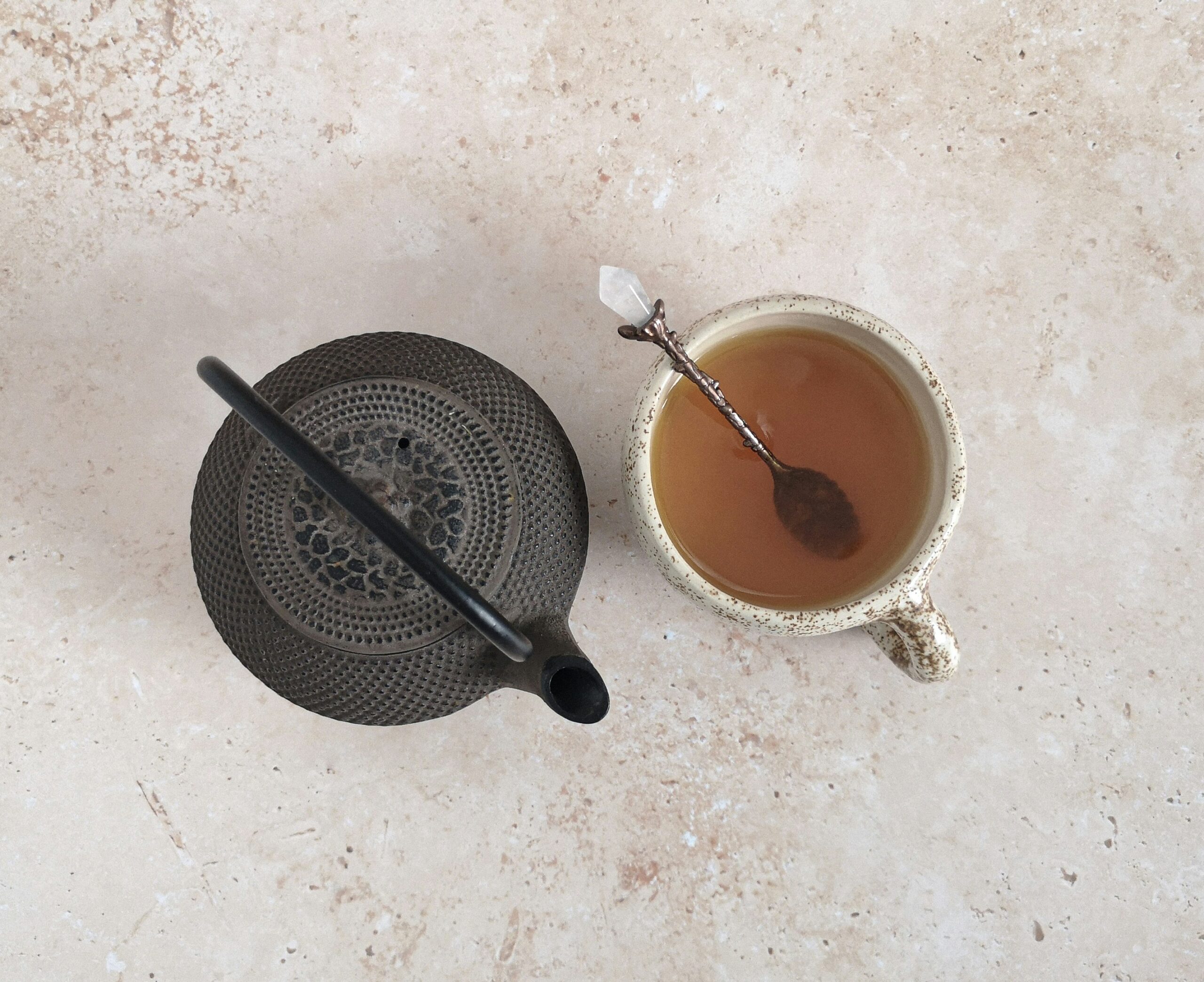

Good news for those wanting a different alternative to coffee – Starting your morning with a cup of herbal tea is a rejuvenating ritual enjoyed by many. Herbal teas offer a gentle way to wake up your senses and prepare for the day ahead. Unlike traditional caffeinated teas and coffee, many herbal teas provide a soothing experience without the jolt of caffeine. These teas come in a multitude of flavours and potential health benefits that can align with your morning routine and wellness goals.
Exploring different herbal tea varieties can be a delightful way to discover what suits your palate and energy needs for the start of the day. From ginger root, known for aiding digestion and circulation, to passionflower tea, which may contribute to better sleep quality if consumed the night before, herbal teas cater to a broad spectrum of dietary and medicinal needs. They can provide hydration, essential nutrients, and even support for common morning ailments like nausea or congestion.
Key Takeaways
- Herbal teas are a soothing, caffeine-free alternative to start your morning.
- Diverse flavours and health benefits allow for a personalized morning routine.
- Selecting the right tea can support hydration, nutrition, and overall well-being.
What are we talking about today?
- Exploring Herbal Tea Varieties – Best Morning Tea
- Health Benefits of Best Herbal Teas for Morning
- Caffeine Content and Energy Levels
- Culinary Considerations for Best Herbal Tea for Morning
- Cultural and Ayurvedic Significance
- Practical Tips for Brewing and Enjoyment
Exploring Herbal Tea Varieties – Best Morning Tea
We list out the five best teas that offer a spectrum of flavours and benefits that can enhance your morning routine. Whether you’re looking for an energizing boost or a caffeine-free alternative, there’s a variety to suit your needs. So get ready to grab your cup of tea! These options are easily accessible at your local grocery store in tea bags.

1# Green Tea (Matcha Tea)
Green tea is a popular choice for its subtle energising properties. It’s rich in antioxidants, and studies have shown that it can help improve brain function. If you enjoy a delicate flavour with health benefits to start your day, green tea is an excellent option.
2# Chamomile Tea
Known for its calming effects, chamomile tea is a great nighttime beverage but also a soothing morning selection for those seeking a peaceful start. The mild, apple-like flavor of chamomile can help ease your morning into motion, especially if you want a caffeine-free drink to awaken your senses gently.
3# Peppermint Tea
Peppermint tea is a refreshing choice that can help soothe an upset stomach and kickstart your digestion. Its invigorating minty flavor is perfect for those who desire a caffeine-free, lively start to their day with a herbal twist.
4# Ginger Tea
For a warming and stomach-calming effect, consider starting your day with ginger tea. The zesty, bold flavor of ginger is not only stimulating but can also aid in digestion and help combat morning sickness. If you enjoy a spicy kick, ginger can be the perfect morning tea to ignite your energy.
Ginger may also boost your immune system. See How To Make Ginger Lemon Tea With Honey: Lemon Ginger Tea Benefits
5# Oolong Tea
Oolong tea fits between green and black teas in terms of oxidation. While not entirely caffeine-free, it has a lower caffeine content that provides a milder boost of energy. Its unique and diverse flavor profiles range from fruity to creamy, making it a versatile choice for any morning tea connoisseur.
RELATED: The So-Called Healing Power Of Herbal Tea – An Introduction
Health Benefits of Best Herbal Teas for Morning
Kicking off your day with a cup of herbal tea can do more than just warm you up; it can boost your health, too. Packed with antioxidants, vitamins, and other health-promoting properties, the right morning brew can aid your heart, improve digestion, and sharpen your mental focus.
Antioxidants and Heart Health
Sipping on a cup of herbal tea may provide you with an abundance of antioxidants. These great allies to your health can protect your cells from damage and reduce the risk of chronic diseases. Specifically, certain herbal teas contain compounds that support heart health and possess anti-inflammatory properties which could help to maintain healthy blood pressure and cholesterol levels.
Digestion and Metabolism
A morning herbal tea might just be the partner your digestive system needs for that morning boost. Many blends boast a combination of herbs known to stimulate digestion and metabolism. This can lead to feeling lighter and more energized. Plus, a well-functioning digestive system is integral to your overall health status and may even contribute to better nutrient absorption from your food.
Mental Clarity and Focus
As you face the day, mental clarity and focus are essential. Herbal teas, particularly those with adaptogenic properties, may help manage stress and anxiety, making it easier for you to concentrate. Additionally, certain herbs have been linked to improved alertness and energy levels, which can give you a much-needed energy boost in the morning and cognitive function without the jitters that coffee might cause.
Caffeine Content and Energy Levels
When seeking the perfect tea to start your morning, consider both caffeine content and the energy-boosting potential. Caffeine is renowned for its ability to increase alertness and combat fatigue, while some herbal teas can provide a natural energy lift without the presence of caffeine.
Caffeine-Free Alternatives
If you’re looking to cut down on caffeine or avoid it altogether, a great alternative are herbal teas. A great option is traditional choices like ginger tea are caffeine-free yet invigorating, making them an excellent beverage to begin the day. While they don’t offer the caffeine kick, these teas can stimulate your senses through their vibrant flavors and aromas, potentially giving you a gentle energy boost.
Some caffeine-free teas to consider that may be a great choice for you:
- Ginger Tea: Naturally caffeine-free and known for its energizing quality.
- Rooibos: A herbal option with a soothing taste that’s also free from caffeine.
Energy-Boosting Blends
For those of you who crave a morning energy surge, teas such as yerba mate, matcha, and green tea contain caffeine and can increase your energy levels. Unlike the jolt of energy from a traditional cup of coffee, these teas can provide a great way for a more sustained and balanced energy lift.
- Yerba Mate: Contains caffeine and offers a robust energy increase.
- Matcha: Delivers a unique blend of caffeine and L-theanine, providing a steady and calm energy rise.
- Masala Chai: Combines black tea with spices that can enhance alertness and warm up your morning.
Tip: To decide how much energy you want from your tea, check the caffeine content and consider how it aligns with your sensitivity to caffeine and your desired energy level.
Culinary Considerations for best herbal tea for morning
When you choose a herbal tea for the morning, consider its compatibility with your breakfast and how you like your tea sweetened. Finding the right combination can enhance your tea’s flavour and create a harmonious start to your day.

Pairing with Foods
Pairing your morning herbal tea with the right foods can amplify its delicate flavors and complement your breakfast. For instance:
- Ginger tea pairs beautifully with a zesty fruit salad, as the spice can enhance the natural sweetness of the fruit. RELATED: How To Make Ginger Lemon Tea With Honey: Lemon Ginger Tea Benefits
- A cup of cinnamon tea can be a cozy complement to oatmeal or whole-grain toast, rounding out the meal with warm, comforting notes.
- If you prefer cardamom tea, try pairing it with a savory option like eggs or a cheese platter, as cardamom’s slightly sweet and spicy flavor profile cuts through the richness.
Always mindful of the calories, incorporating these combinations can keep your blood sugar stable and energy levels steady throughout the morning.
Sweetening Options
Choosing the right sweetener for your herbal tea can make a big difference and give the extra boost in the overall taste experience while being conscious of your glucose levels.
- Honey, with its natural sweetness, not only adds a rich flavour to your tea but may also offer some health benefits. Just remember that a teaspoon has about 20 calories, so moderation is key.
- If you’re cutting down on calories, you might opt for a sugar substitute like stevia, which can sweeten your tea without affecting your blood sugar.
- For those who enjoy creamier beverages, adding a splash of milk to teas like chai can create a comforting, smooth texture and help balance out strong spices like cinnamon or cardamom.
By considering these aspects, you’ll not only enjoy your tea but also support your dietary preferences and needs.
Cultural and Ayurvedic Significance
Herbal teas have been intertwined with both culture and Ayurveda, offering not just a refreshing start to your day but also a connection to ancient practices and holistic health.
Traditional Uses
In the realm of Ayurvedic medicine, herbal teas are more than just beverages; they’re part of a long-standing tradition of promoting balance and wellness in the body. For instance, teas like tulsi are revered for their medicinal properties, releasing oxygen in the morning which aids in starting your day with clarity and calm. The ritual of morning tea can serve as a gentle wake-up call, helping to align your body’s rhythms with the natural world.
Sage tea and rosemary tea are steeped in tradition as well, known for their roles in purification and improving well-being. These herbs are often used in rituals and ceremonies, contributing to a sense of relaxation and spiritual healing.
Modern Adaptations
Today, you’ll still find traditional herbs in your morning tea, but they’re often blended with more familiar flavors such as earl grey, english breakfast tea, and oolong tea. These modern adaptations combine the cultural significance of tea with contemporary taste preferences, making the morning ritual accessible to a broader audience.
Moreover, fermented teas like kombucha have gained popularity for their potential health benefits and are even incorporated into the morning routines of the wellness-conscious. Pu-erh, a fermented tea, is another example that’s not only cherished for its unique taste but also for its traditional use in supporting digestion, especially when consumed in the morning.
Your choice in morning tea, whether a traditional herb or a modern blend, connects you to a heritage of wellness and a culture of mindful living.
Practical Tips for Brewing and Enjoyment
Before you start your day with a warm cup of herbal tea, knowing how to brew and enjoy your morning drink can enhance your experience. Optimal brewing brings out the full flavor of the tea, and timing its consumption can benefit your wellness routine.
Brewing Techniques
To prepare the perfect cup of herbal tea, begin with fresh, purified water as it’s the foundation of any great tea. Boil the water and let it cool slightly before pouring over your tea to avoid burning the delicate herbs which could lead to a bitter taste.
- Temperature: Heat some hot water until just before boiling (about 95°C or 203°F) for most herbal teas.
- Steeping Time: Allow the tea to steep for 5 to 10 minutes. Some tea blends, especially those containing adaptogens like ginseng, may require a longer steep to fully release their beneficial properties.
- Quantities: Use one teabag or approximately 1 to 2 teaspoons of loose-leaf tea per 8 ounces of water for a balanced brew.
Keep in mind that some herbal teas act as a diuretic, and over-steeping could intensify this effect, so adjust according to your body’s hydration needs.
Best Times to Drink
Drinking herbal tea in the morning can be both a hydrating and therapeutic ritual to start your day. To incorporate tea into your morning effectively, consider the following:
- Upon Waking: If you are a morning person, drinking a cup of herbal tea first thing in the morning can help rehydrate you after a night’s sleep and may alleviate morning sickness or nausea.
- Before Breakfast: Certain teas can stimulate digestion. Drinking a warm cup before your meal may help prepare your stomach for breakfast.
- Post-Meal: If your preferred morning tea blend is rich in mint or ginger, enjoying it after your meal can aid in digestion and add to your morning satisfaction.
Remember, herbal teas are typically caffeine-free, making them an excellent choice for those looking to reduce caffeine intake without sacrificing a morning ritual. Some herbal teas have also been linked to reducing the risk of heart disease when included as part of a balanced diet. Choose blends in tune with your body’s needs and enjoy them at times that best suit your daily routine.



Comments +